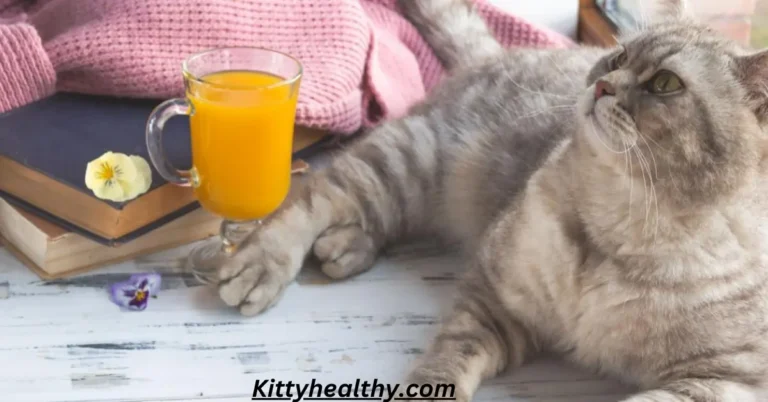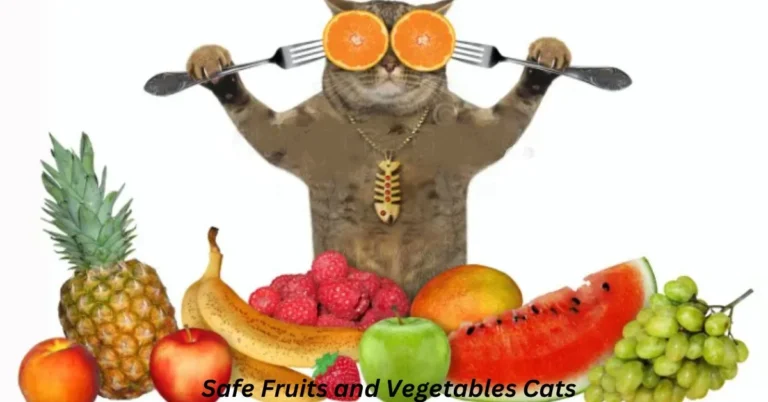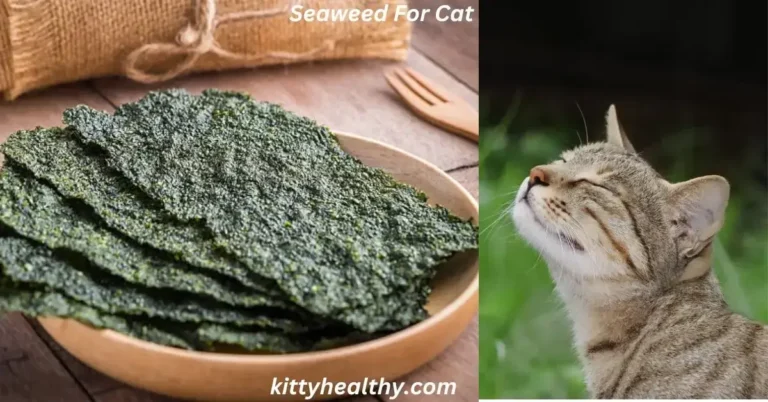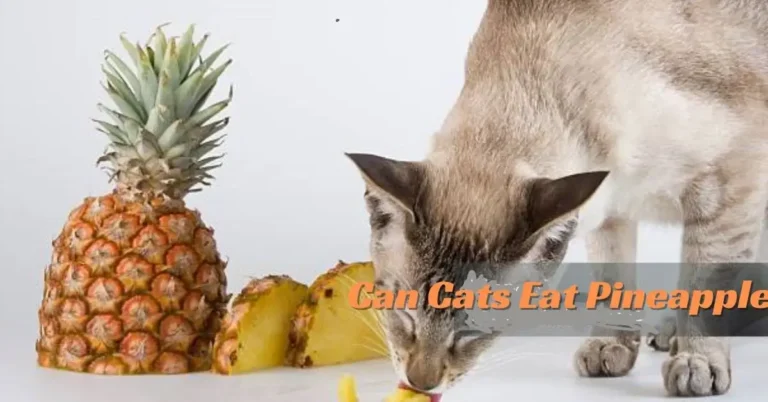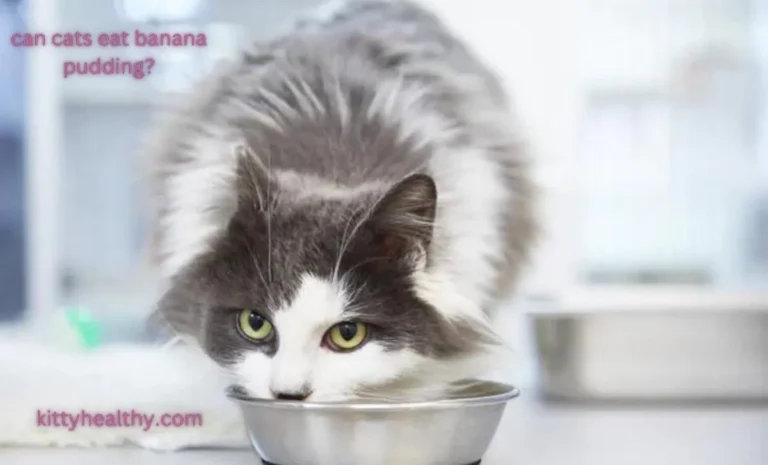Can Cats Eat Pomegranate? And Its Potential Health Implications
When pondering the question, Can cats eat pomegranate?’ it’s essential to consider the unique dietary needs of our feline friends. Although pomegranates are a treasure trove of vitamins and antioxidants for humans, they don’t offer the same benefits to cats.
Our furry pals, being obligate carnivores, require a protein-rich diet, and the complex sugars and acids in pomegranates can upset their delicate digestive systems.
While a tiny nibble might not lead to immediate harm, it’s generally advised to avoid offering this fruit to them.
It’s always safer to stick to cat-specific treats and meals that cater to their nutritional needs, ensuring they stay as healthy and joyful as they make us feel.
Let’s Learn about a cat’s dietary needs, the nutritional aspects of pomegranates, and how to keep your feline friend healthy and happy.
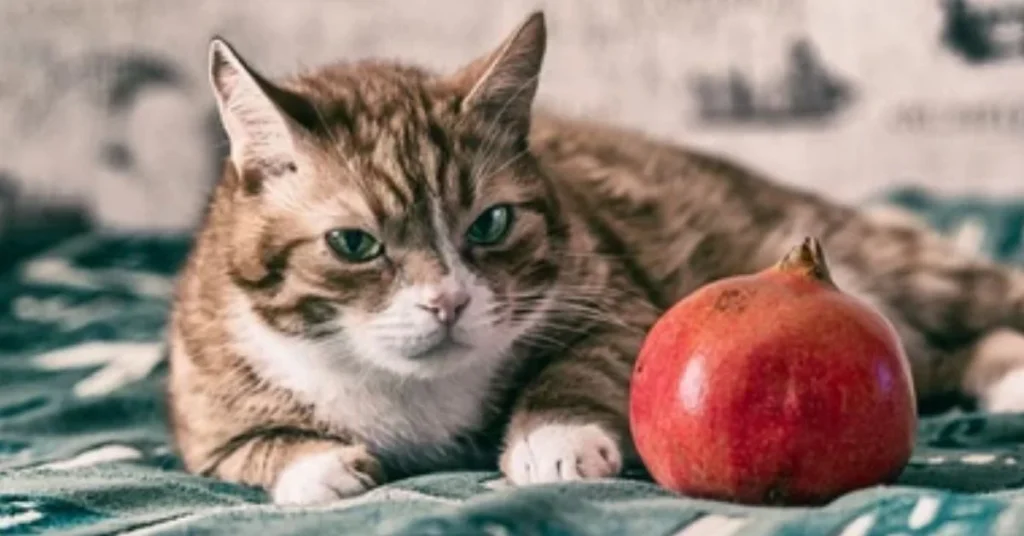
Understanding a Cat’s Dietary Requirements
Grasping the dietary needs of cats is crucial, especially when considering whether foods like pomegranates fit into their diet. Being obligate carnivores, cats require a diet that’s high in proteins and certain essential nutrients, primarily found in meat sources.
This raises questions about the suitability of fruits such as pomegranates for our feline friends. While pomegranates are packed with nutrients beneficial for humans, they don’t align with a cat’s natural dietary needs, which lack the enzymes to break down plant-based sugars and acids effectively.
Understanding this helps us realize that keeping our beloved pets healthy involves more than just sharing our favorite fruits with them.
It’s about respecting their biological dietary requirements to ensure they remain energetic, healthy, and as playful as ever.
Pomegranates Nutritional Overview for Cats
Pomegranates are celebrated for their exceptional nutritional value, a factor that often leads pet owners to wonder, Can their cat consume it?’
This fruit is a powerhouse of vitamins, particularly Vitamin C, and is rich in antioxidants like punicalagins and anthocyanins, which are known for their health-boosting properties in humans. Pomegranates also contain dietary fibers and a range of minerals, including potassium.
However, while these nutrients don’t necessarily translate to benefits for cats. Understanding the distinction in dietary needs between humans and felines is crucial, especially when it comes to foods like pomegranates that are outside a cat’s natural diet.
This knowledge assists in making educated decisions regarding our pets’ dietary needs, safeguarding their health and energy.
Analyzing The Suitability Of Pomegranates For Cats
Understanding the distinct nutritional needs of cats is crucial. Unlike humans, who benefit from the vitamins, antioxidants, and fibers in pomegranates, cats have different nutritional needs.
As obligate carnivores, their diet should be primarily protein-based. The sugars and acids found in pomegranates don’t align with a cat’s digestive system, potentially leading to stomach upset or other health issues.
While not necessarily toxic, pomegranates don’t offer any health benefits to cats, indicating that they are not a suitable treat for our feline companions.
This understanding is vital for pet owners to ensure they provide a diet that maintains their cat’s health and vitality, without the risks posed by unsuitable human foods.”
Potential Health Implications of Pomegranates for Cats
Delving into the health implications of pomegranates for cats, a key concern for pet owners, reveals important insights. While pomegranates are not classified as toxic to cats, their unique composition can pose certain risks.
The high sugar content and acidic nature of pomegranates may lead to digestive discomfort or more serious gastrointestinal issues in cats, who are primarily meat-eaters. Additionally, pomegranate seeds might pose a risk of choking or lead to intestinal obstruction.
These potential health concerns emphasize the importance of adhering to a cat-friendly diet, steering clear of human foods that, like pomegranates, might be harmless in small quantities but are not ideally suited for feline consumption.
It underscores the necessity for pet owners to be vigilant about their furry friend’s diet, ensuring their well-being and long-term health.
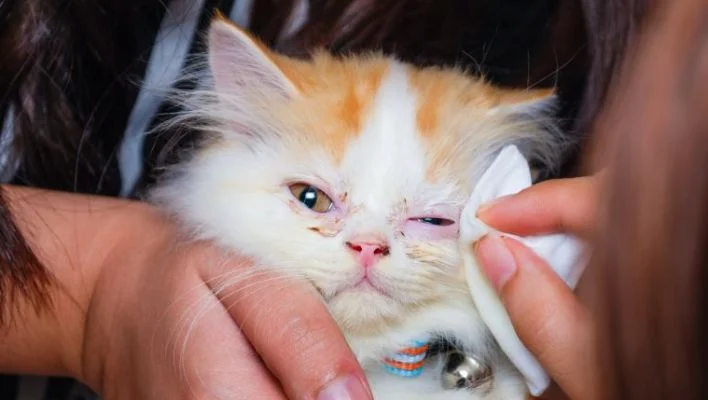
Alternatives to Pomegranate for Cats
It’s vital to consider healthier alternatives that align with a cat’s dietary needs. Instead of pomegranate, which can be problematic for cats due to its sugar content and acidity, there are safer fruit options like small portions of melon or blueberries, which some cats may enjoy.
Yet, it’s crucial to note that such items should be offered sparingly as occasional treats, rather than as main components of their diet.
Cats primarily require high-quality protein from meat sources for optimal health. Those looking to diversify their cat’s diet should consult with a veterinarian or feline nutritionist.
This professional guidance can ensure the safety and nutritional value of dietary additions. Ultimately, these consultations contribute positively to the cat’s overall health and well-being.
Best and Worst Fruits for Cats
| Best Fruits for Cats | Worst Fruits for Cats |
| Small amounts of Melon | Grapes and Raisins |
| Blueberries (in moderation) | Citrus Fruits (e.g., Lemons, Limes) |
| Peeled Apples (seeds removed) | Cherries (pit and plant are toxic) |
| Bananas (in small amounts) | Avocado (contains persin) |
| Seedless Watermelon (in moderation) | Tomatoes (green parts are toxic) |
Important Note: While some fruits are safe for cats in small quantities, they should not make up a significant part of a cat’s diet, which needs to be high in animal protein. Also, always remove seeds and pits from fruits, as they can be harmful to cats.
What To Do If Your Cat Eats Pomegranate
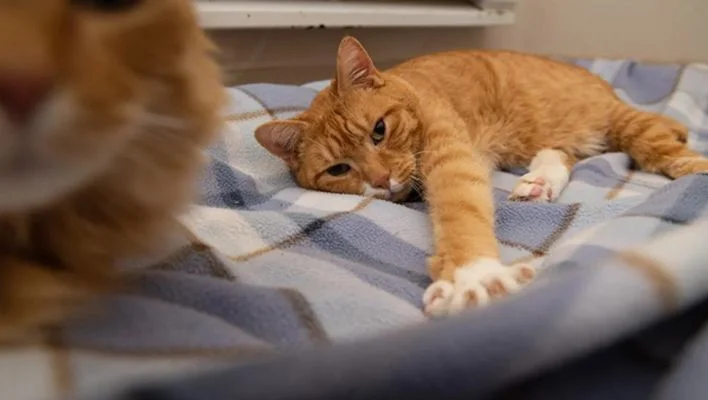
If your cat consumes pomegranate, it’s essential to respond thoughtfully. Pomegranate is not a suitable choice for them.
Begin by closely monitoring your cat for any indications of discomfort or allergic responses, such as vomiting, diarrhea, or lethargy. If these symptoms appear, it’s prudent to consult your veterinarian immediately.
During this time, make sure your cat can easily reach a sufficient supply of fresh water to prevent dehydration.
Your vet may suggest a bland diet temporarily to ease any digestive upset. Remember, while pomegranates aren’t highly toxic to cats, they’re not part of their natural diet. In the future, keep such fruits out of reach and focus on cat-friendly treats to safeguard your furry companion’s health.
Related Posts
Safe Fruits and Vegetables Cats
Conclusion
In conclusion, while pomegranates boost nutritional benefits for humans, they don’t offer the same advantages for cats.
Cats, as obligate carnivores, require a protein-centric diet for optimal health. Consequently, fruits such as pomegranates can potentially cause digestive issues in them.
It’s crucial to choose cat-friendly food options and consult a vet for dietary advice. Remember, occasional safe fruits can be a treat, but the core of a cat’s diet should always be high-quality animal protein.
By understanding and respecting our feline friends’ dietary needs, we can ensure their long-term health and happiness.
See also: Can Cats Eat Raw Chicken?
FAQs
Yes, certain fruits are toxic to cats. Grapes and raisins can cause kidney failure, while citrus fruits like lemons and limes can lead to upset stomachs. Cherries and avocado are also harmful; cherries contain cyanide in their pits, and avocado has persin, which is toxic to cats.
Cats can lick some fruits in small amounts, provided the fruits are safe for them. However, due to their carnivorous nature, fruits aren’t necessary for their diet and should only be offered as an occasional treat. Always ensure the fruit is non-toxic and given in moderation.
Certain human foods, including onions, garlic, chocolate, caffeine, and alcohol, are harmful to cats. Additionally, grapes, raisins, and products with xylitol should be avoided. These foods can lead to various health issues, ranging from digestive upset to more severe conditions. Consequently, ingestion of these items can result in anemia and kidney failure in cats.
Cats should not eat onions, garlic, chocolate, caffeine, alcohol, grapes, raisins, and xylitol-containing products. These foods can cause serious health issues, ranging from gastrointestinal upset to life-threatening conditions like anemia and organ damage. It’s important to keep these foods out of your cat’s reach.
Cats have the capacity to consume ice cream, but it’s not advisable. The majority of cats are lactose intolerant, which implies that dairy items like ice cream can lead to digestive discomfort. Additionally, the sugar and additives in ice cream are not healthy for cats. It’s better to avoid feeding them ice cream.

